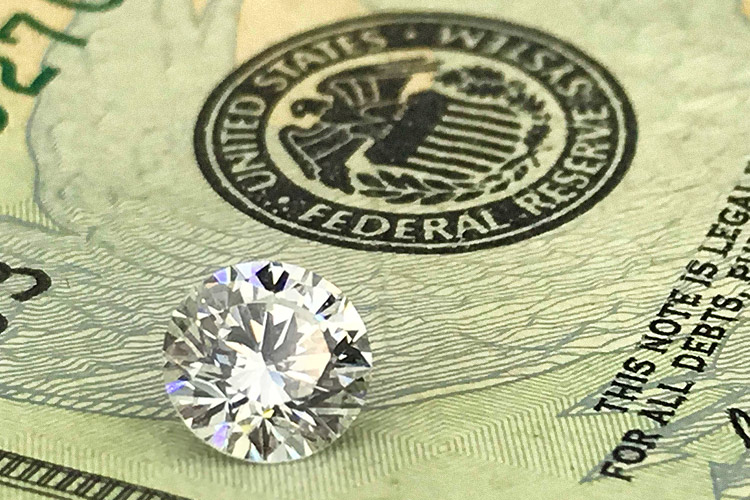What to Know About Anti-Money Laundering Laws

There are a lot of things you need to focus on to grow sales and keep your jewelry business successful. More money can bring about more problems, though.
It’s not just because there’s more of it to manage, but jewelers specifically need to be cognizant of Anti-Money Laundering (AML) laws. Complying with these laws can be tricky for jewelers, but one thing is for sure: if you don’t, you could face serious penalties.
If you’re not familiar with the laws, who needs to comply with them, how to comply, and what could happen if you’re not compliant, it’s time you learned.
Learning isn’t the only thing you need to do, though — Anti-Money Laundering certification for jewelers is required and you need to do it on an annual basis.
Before you create a program and get it certified, these are some of the basics to know:
What are Anti-Money Laundering Laws?
The Financial Crimes Enforcement Network (FinCen) defines “money laundering” as the process of making illegally-gained proceeds appear legal.
To prevent “dirty money” attempting to be made “clean,” Anti-Money Laundering laws were initiated in the United States beginning with the Bank Secrecy Act in 1970.
These laws have not changed, but their scope has been broadened. Amendments made by the USA PATRIOT Act in 2001 includes jewelers as part of the “financial system” because of the enormous value gems, jewelry, and precious metals carry.
Given the possibility that dirty money from illegal activities could be converted to clean money through trading jewelry, there are no signs that these laws will be rolled back.
Who needs to comply with the laws?
FinCen defines jewelry “dealers” and “retailers” differently and compliance to Anti-Money Laundering laws is based how jewelers conduct their business.
“Dealers” are defined as those who purchased covered goods in an amount exceeding $50,000 during the prior calendar or tax year and received more than $50,000 in gross proceeds from the sale of precious metals, jewelry, and gemstones during the same time frame.
- Covered goods are defined as precious metals, jewelry, gemstones, and finished goods
- The amount for gross proceeds from sales does not include finished goods
A retailer is one who does most of their selling to the general public. They may be exempt if one of the following situations is applicable:
1) They are a licensed pawnbroker
2) They purchase only from other retailers or U.S.-based dealers (who should already have a certified AML program)
3) They purchase less than $50,000 in covered goods from non-dealers in the prior calendar or tax year
All transactions involving $10,000 or more (sale or purchase) in cash or cash equivalents still require all industry members to file an IRS 8300 form.
Why is AML compliance for jewelers important?
It’s not you, it’s … them?
What that means is the laws are not necessarily in place because jewelers will behave unethically if they weren’t instituted, but criminals or terrorist organizations will target unsuspecting business.
These corrupt individuals and groups do so by buying your legitimate covered goods to unload their “dirty” money and in turn sell or trade it to finance their unethical operations.
As seen in recent news, the backlash from knowingly laundering money can also have serious repercussions on public image, too.
We’ve shared how important it is for jewelers to keep their merchandise protected from fraud, but this has larger implications than losing your merchandise.
What happens if jewelry businesses are not compliant?
Regulators could enact two different types of penalties for non-compliance.
1) A civil penalty may be a fine up to $250,000 or up to two times the amount of the transaction, not to exceed $1,000,000.
2) A criminal penalty may be a fine up $500,000 and a maximum of 10 years in prison, or both.
Of course, formal investigations and legal proceedings will be done before any charges are filed, but much like an employment lawsuit, you may find it difficult to keep a positive public image associated with your business during the process.
Remember, even if you unknowingly launder money, you can still be charged for being negligent.
How can jewelry businesses comply with AML laws?
If your business is not exempt, you are required to do the following:
- Appoint a “Compliance Officer” to manage your AML program
- Assess the risks your business faces
- Create a written, customized program
- Conduct ongoing employee training
- Check customers and suppliers for risk factors
- Appoint an independent tester to verify that your program is current, appropriate, and effective
- Have your program tested annually
- File appropriate federal forms when needed
If that sounds like a lot, you’re right — there are many things to consider when it comes to AML compliance for jewelers.
Thankfully, you don’t have to guess where to start or go about creating your program blindly.
In addition to offering exclusive discounts and insurance options for jewelers who ship their goods, Jewelers Mutual has an affordable AML program creator to help guide you through every step.